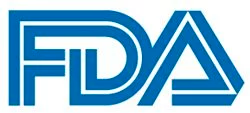News
Article
FDA Lifts Partial Clinical Hold on Phase 1 Trial of YL202 in Advanced NSCLC and Breast Cancer
The FDA has lifted a partial clinical hold on the phase 1 trial evaluating YL202 in advanced breast cancer and EGFR-mutated non–small cell lung cancer.
US FDA

The FDA has lifted the partial clinical hold placed on the phase 1 YL202-INT-101-01 trial (NCT05653752) evaluating YL202 (BNT326) for the treatment of patients with locally advanced or metastatic non–small cell lung cancer (NSCLC) harboring EGFR mutations or hormone receptor (HR)–positive, HER2-negative breast cancer.1
The partial clinical hold was initiated in June 2024 due to potential risk of illness or injuries at higher doses of YL202. Five patients treated with the antibody-drug conjugate (ADC) in the YL202-INT-101-01 trial and the phase 2 YL202-CN-201-01 trial (NCT06107686) experienced grade 5 adverse effects (AEs).2
In response to the partial clinical hold, the study sponsor MediLink Therapeutics conducted a data analysis, updated its investigator brochure and informed consent for patients, and adjusted protocols for YL202-INT-101-01 to incorporate risk-mitigation measures such as dose delays, reductions, and modifications, as well as prophylactic measures to manage treatment-related AEs (TRAEs). Data for YL202 showed a dose-dependent trend in TRAEs, including decreased neutrophil count and an increasing rate of mucositis.
With the partial clinical hold lifted, trial enrollment will resume in the United States. Patients will not be enrolled in dose cohorts higher than 3 mg/kg of YL202.
YL202 is a HER3-directed ADC that is conjugated with a protease-cleavable linker that is activatable in the tumor microenvironment, and pairs with a cytotoxic DNA topoisomerase I inhibitor.3 The agent is being developed in collaboration between MediLink Therapeutics and BioNTech.1
YL202-INT-101-01 is an open-label, multicenter, first-in-human study enrolling patients at least 18 years of age with histologically or cytologically confirmed, locally advanced or metastatic NSCLC harboring an EGFR exon 19 deletion or exon 21 L858R mutation who experienced disease progression on or after, or were intolerant to, prior standard therapies; or patients with histologically or cytologically confirmed, unresectable locally advanced or metastatic HR-positive, HER2-negative breast cancer who had disease progression on or after, or were intolerant to, standard therapies.4
All patients are required to have an ECOG performance status of 0 to 2, adequate organ and bone marrow function, a life expectancy of at least 3 months, and at least 1 measurable tumor lesion per RECIST 1.1 criteria.
Patients are being excluded if they were intolerant to prior treatment with a topoisomerase I inhibitor or an ADC containing a topoisomerase I inhibitor. Other key exclusion criteria include prior allogeneic bone marrow or solid organ transplant; treatment with systemic steroids or other immunosuppressive therapy within 2 weeks of first study dose; treatment with any live vaccine within 4 weeks of first study treatment; a history of leptomeningeal carcinomatosis; brain metastases or spinal cord compression, unless patients are asymptomatic or treated and stable off steroids/anticonvulsants for at least 2 weeks before enrollment; uncontrolled or clinically significant cardiovascular disease; and a history of noninfectious interstitial lung disease (ILD)/pneumonitis requiring steroids, current ILD/pneumonitis, or suspected ILD/pneumonitis that cannot be ruled out by imaging.
Additionally, patients cannot have clinically significant concomitant pulmonary disease; clinically significant corneal disease; a diagnosis of Gilbert syndrome; active gastric and duodenal ulcers, ulcerative colitis, or other gastrointestinal conditions that may cause bleeding or perforation; or active infection requiring systemic therapy within 1 week before the first study dose.
YL202 is being administered to all patients once every 3 weeks.
AEs and the incidence of dose-limiting toxicities are serving as the trial’s primary end points. Secondary end points included pharmacokinetics, objective response rate, disease control rate, and best tumor response.
The phase 2 YL202-CN-201-01 trial is evaluating YL202 in patients with select locally advanced or metastatic solid tumors, including NSCLC, breast cancer, head and neck squamous cell carcinoma, and others.5
References
- Lift of partial clinical hold for BNT326/YL202. News release. BioNTech. August 19, 2024. Accessed August 19, 2024. https://investors.biontech.de/news-releases/news-release-details/lift-partial-clinical-hold-bnt326yl202
- United States Securities and Exchange Commission: Form 6-K. BioNTech. June 2024. Accessed August 19, 2024. https://investors.biontech.de/static-files/88d94e29-bac6-4d42-b726-649aa16e22a4
- Anti-HER3 antibody-drug conjugate YL202. National Cancer Institute. Accessed August 19, 2024. https://www.cancer.gov/publications/dictionaries/cancer-drug/def/anti-her3-antibody-drug-conjugate-yl202
- A study of YL202 in patients with locally advanced or metastatic non-small cell lung cancer and breast cancer. ClinicalTrials.gov. Updated June 21, 2024. Accessed August 19, 2024. https://classic.clinicaltrials.gov/ct2/show/NCT05653752
- A study of YL202 in selected patients with advanced solid tumors. ClinicalTrials.gov. Updated May 17, 2024. Accessed June 21, 2024. https://clinicaltrials.gov/study/NCT06107686








